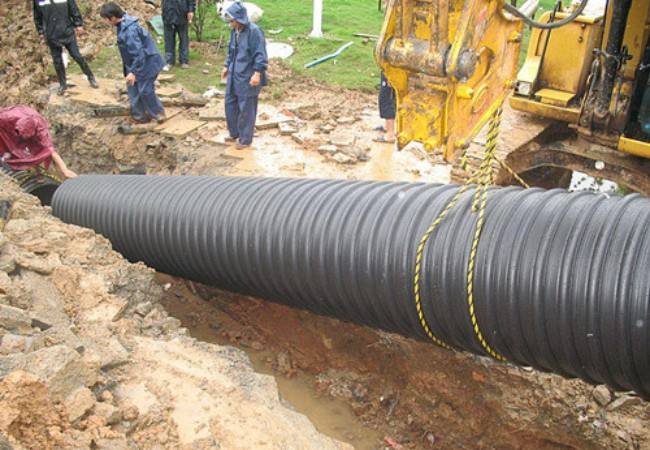Dec . 26, 2024 18:53 Back to list
Choosing the Best Underground PVC Pipe Options for Your Project Needs
Understanding Underground PVC Pipe Products
In the realm of construction and infrastructure, the importance of proper piping systems cannot be overstated. One of the most widely used materials for underground piping is polyvinyl chloride, commonly known as PVC. This article explores the advantages, applications, and considerations surrounding underground PVC pipe products.
What is Underground PVC Pipe?
PVC pipes are synthetic plastic pipes made from polyvinyl chloride. They are renowned for their durability, strength, and resistance to corrosion, making them an excellent choice for underground applications. These pipes are engineered to withstand various ground pressures, making them suitable for a range of subterranean uses, from drainage systems to sewage lines and irrigation setups.
Advantages of Using PVC Pipes
1. Durability PVC pipes are highly resistant to chemicals and physical wear. This durability extends the life of the piping system, reducing the frequency of replacements and maintenance.
2. Lightweight Compared to metal pipes, PVC pipes are much lighter. This characteristic simplifies installation, reduces labor costs, and enables easier transportation of materials to work sites.
3. Corrosion Resistance One of the most significant benefits of PVC is its resistance to corrosion and rust, which is particularly crucial for underground installations that might be exposed to moisture and various soil conditions.
4. Cost-Effectiveness PVC pipes are typically less expensive than their metal counterparts due to lower material costs and reduced installation expenses. Their longevity further drives down the overall expense associated with plumbing systems.
5. Ease of Installation The flexibility and compatibility of PVC pipes with various fittings make them relatively easy to install. They can be joined using solvent cement or mechanical fittings, allowing for quick assembly and modification as necessary.
Applications of Underground PVC Pipe Products
1. Drainage Systems PVC pipes are commonly used for drainage applications, managing stormwater and preventing flooding in urban infrastructure. Their smooth interior surface facilitates water flow, reducing the likelihood of clogs.
underground pvc pipe products

2. Sewage and Wastewater Many municipalities utilize PVC pipes in their sewage systems due to their ability to handle waste without degrading over time. This use enhances sanitation and sustainability in urban environments.
3. Irrigation PVC pipes are also employed in agricultural settings for efficient irrigation systems. They enable the transportation of water across different terrains, promoting effective water management practices.
4. Conduits for Electrical Wiring In addition to fluid transport, PVC pipes serve as conduits for electrical wiring, providing protection against moisture and preventing electrical hazards in underground installations.
5. Gas Distribution Certain grades of PVC can be used for natural gas distribution, providing a safe and reliable option for energy transport.
Considerations When Using PVC Pipes
While the benefits of PVC pipe products are significant, there are considerations to keep in mind
1. Temperature Sensitivity PVC exhibits a reduction in strength at high temperatures and may become brittle at very low temperatures. It’s essential to select the appropriate PVC grade according to the temperature conditions of the application.
2. Environmental Concerns Although PVC is recyclable, there are environmental concerns regarding the production and disposal of PVC products. Efforts to improve the sustainability of PVC are ongoing in the industry.
3. Proper Installation To maximize the benefits of PVC pipes, proper installation techniques should be adhered to. Ensuring that joints are precision-fit and that the surrounding soil is adequately compacted can prevent future issues such as pipe collapse or leakage.
Conclusion
Underground PVC pipe products play a crucial role in modern infrastructure, providing reliable solutions for various piping needs. Their combination of durability, cost-effectiveness, and ease of installation makes them an ideal choice for many applications. However, it is important to consider their limitations and follow best practices during installation to ensure long-term success. As the demand for sustainable and efficient infrastructure grows, PVC pipes will undoubtedly remain a go-to material in the construction industry.
-
High-Quality PVC Borehole Pipes Durable & Versatile Pipe Solutions
NewsJul.08,2025
-
High-Quality PVC Perforated Pipes for Efficient Drainage Leading Manufacturers & Factories
NewsJul.08,2025
-
High-Quality PVC Borehole Pipes Durable Pipe Solutions by Leading Manufacturer
NewsJul.08,2025
-
High-Quality PVC Borehole Pipes Reliable PVC Pipe Manufacturer Solutions
NewsJul.07,2025
-
High-Quality UPVC Drain Pipes Durable HDPE & Drain Pipe Solutions
NewsJul.07,2025
-
High-Quality Conduit Pipes & HDPE Conduit Fittings Manufacturer Reliable Factory Supply
NewsJul.06,2025

